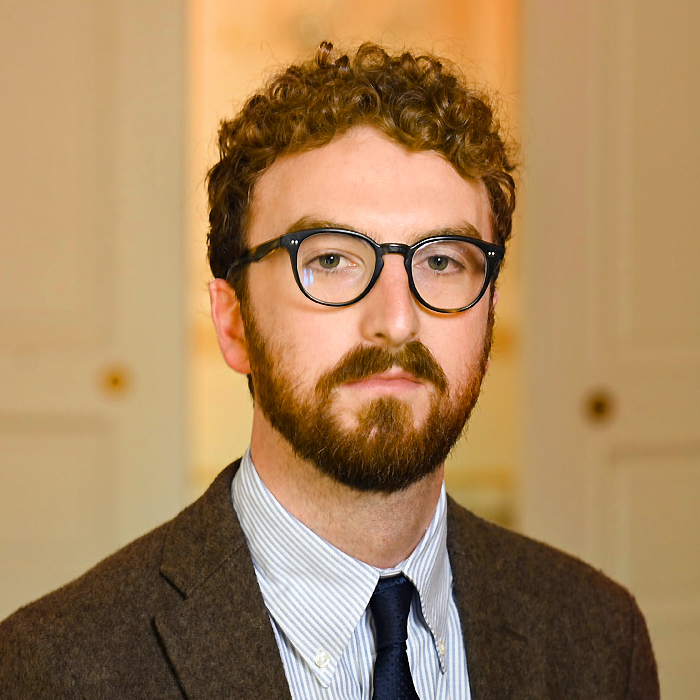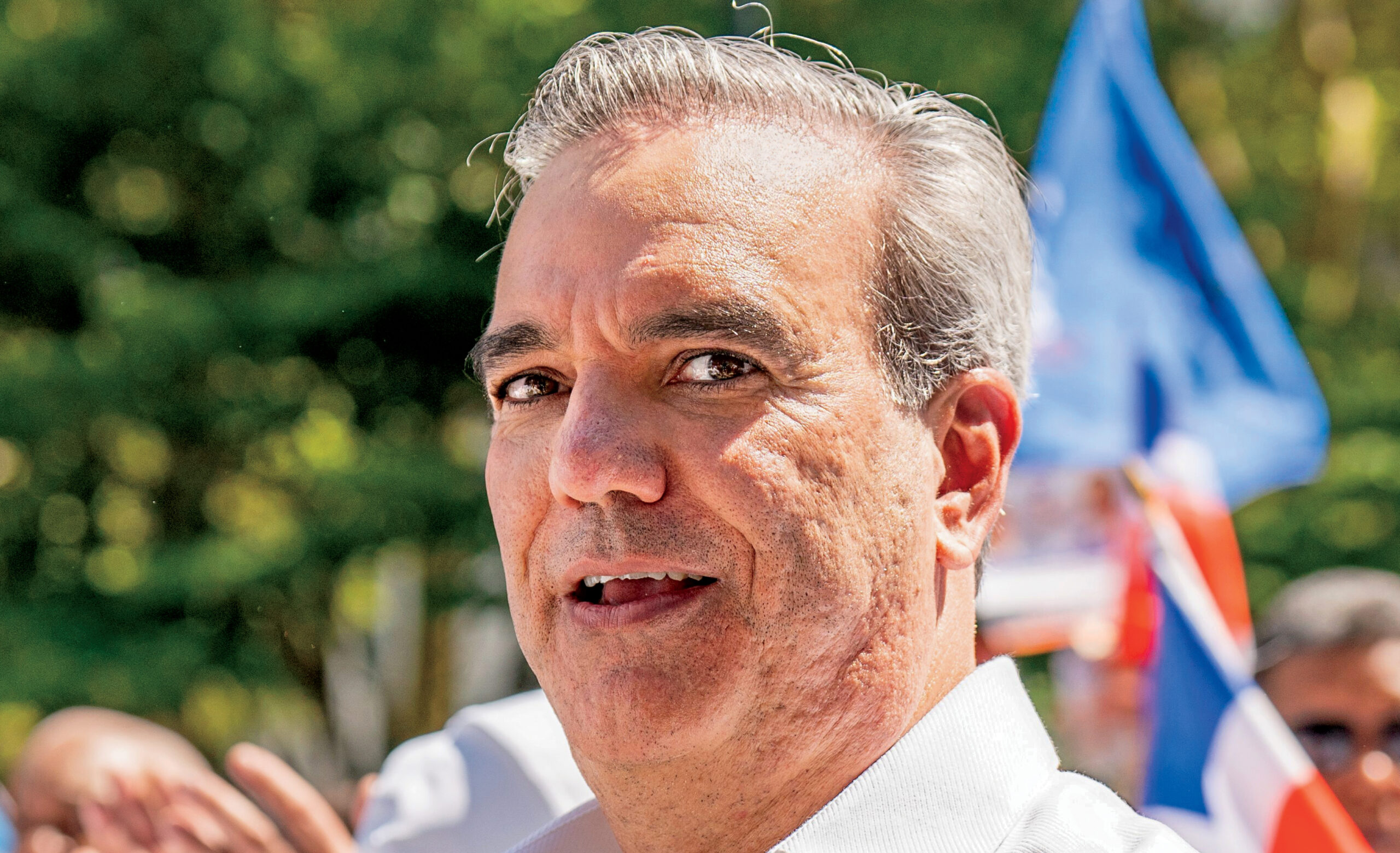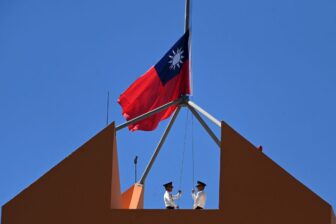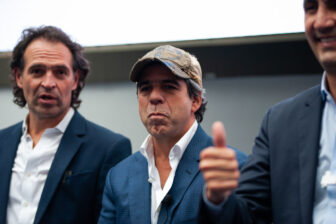This article is adapted from AQ’s special report on Latin America’s election super-cycle
The Dominican Republic’s President, Luis Abinader, is a rare thing in Latin America today: a popular incumbent who seems to be cruising to reelection later this year. With around 70% approval and a lead of around 25 points over his nearest competitor in polls, other politicians in the region might be tempted to wonder: What’s his secret?
Some reasons are clear enough. Abinader, 56, took office in August 2020, just in time for an economic boom led by foreign tourists who deemed Dominican beaches to be an ideal escape in the wake of the pandemic. After shrinking 7% in 2020, the Dominican economy rebounded to 12% growth in 2021, 5% in 2022 and an estimated 3% in 2023. The International Monetary Fund (IMF) recently ranked it the country in Latin America where living standards were increasing most rapidly.
A former executive in the tourism industry, Abinader credits his success to a balanced approach in a region characterized by the left-right divide. “We have the formula of [being] pro-business, but also strong social programs [and] transparency. That’s the only formula that works,” he told AQ in an interview during a recent trip to Washington.

Meet the candidates in the Dominican Republic’s 2024 election
Dominicans see economic stability as the star accomplishment of Abinader’s tenure, according to an October poll by Gallup and RCC Media. His increasingly tough stance on relations with Haiti, the crisis-torn country with which the Dominican Republic shares a border, has also won considerable public support at home—and criticism from human rights organizations. Construction began in 2022 on a controversial wall Dominican authorities want to span about half the length of the international border.
But the chief reason why Abinader won the presidency is an area where some critics say he still has work to do: fighting corruption.
Abinader’s predecessors were shaken by numerous corruption scandals, including one involving the Brazilian-based construction company Odebrecht. Mass protests against graft broke out in 2017, creating a kind of before-and-after moment in Dominican politics. On issues of public corruption, “there’s been an awakening of civil society … there’s more participation, organized participation,” said Claudia de Windt, an international lawyer from the Dominican Republic.
Abinader made cracking down on corruption a central part of his campaign, and once in office appointed as attorney general a respected former Supreme Court judge, Miriam Germán Brito. She has overseen sprawling corruption investigations with flashy names, reminiscent of those seen in other parts of the region, like Operación Antipulpo (“Operation Anti-Octopus”), Operación Calamar, Caso Coral and Caso 5G.
Results came quickly. The probes have ensnared several high-ranking officials in the Danilo Medina administration (2012-20), including former Finance Minister Donald Guerrero and former Attorney General Jean Alain Rodríguez. Guerrero was accused of orchestrating a scheme involving irregular payments for land taken through eminent domain. Rodríguez was accused of having deviated funds from the public prosecutor’s office to fund a group supporting his own presidential ambitions. (Guerrero and Rodríguez have each denied the charges against them. Former President Medina himself has not been charged in the investigations.)
Those prosecutions and others have revived memories of the anti-corruption movement that swept much of Latin America in the 2010s—but lost steam by the end of the decade amid accusations of unevenly applied justice, “lawfare,” or prosecutorial malpractice in places like Brazil and Colombia. Whether Abinader can move beyond such accusations, and produce a lasting improvement in the rule of law in a second term, is probably the biggest question facing his presidency today—with implications beyond just the Dominican Republic.
Anti-corruption under Abinader
In some ways, Abinader’s push appears to have taken into account the lessons of previous anti-corruption drives in Latin America. Some reforms seem designed to give prosecutors more tools, rather than simply focus on spectacular, headline-grabbing investigations.
For example, the passage of a civil forfeiture law in 2022, allowing for the state to recoup stolen assets, met with praise from anti-corruption experts and drew an explicit compliment from the U.S. State Department, which called it “a major achievement.”
The Dominican Republic has shown a marked improvement in the Capacity to Combat Corruption Index, a measurement of Latin American countries’ ability to detect, punish and prevent corruption, produced by Control Risks and AS/COA (the organization that publishes AQ). In 2020 it ranked third from last out of 15 countries measured, with a score of 3.26. By the 2023 edition, the Dominican Republic was in fifth place, with a score of 5.42.
On anti-corruption efforts, “the difference is huge” under the current government, Paola Romero, a lawyer and anti-money laundering specialist, told AQ, pointing to the appointment of compliance officers to oversee public procurement across government ministries. “It’s been a huge step.”
Some observers have complained, however, of slow and unevenly applied justice. As in some other countries, the use of pre-trial detention of the accused has been a point of contention. In November, the UN Working Group on Arbitrary Detentions declared Rodríguez’s detention “arbitrary” and called for his release. It took six months for the Public Ministry to read through its more than 12,000 pages of evidence in court in the Caso Medusa investigation, according to the Dominican press. Guerrero was released from pre-trial detention in November.
The Dominican opposition has been highly critical of the way anti-corruption has been pursued under Abinader, pointing to the fact that the investigations have targeted officials from parties other than the president’s PRM party. “They’re using the fight against corruption as a political weapon,” said José Dantés, an official in the opposition Dominican Liberation Party (PLD), in an interview on Dominican television.
It’s true that no major officials in Abinader’s government have been prosecuted for corruption—though they have faced political consequences once allegations came to light. In August 2022, Abinader’s chief of staff, Lisandro Macarulla, resigned after his name emerged in connection with the investigation into an alleged payments scheme coordinated by Jean Alain Rodríguez. Macarulla has not been formally charged with any crime. And in November 2023, Hugo Beras, head of a government transportation entity, requested unpaid leave after media reports of alleged administrative corruption in a traffic light contract (Beras denies he acted improperly).
Some analysts agree that for a true breakthrough to take place, the president must look deeper within his own government. “Now it’s time for [Abinader] to take his fight against corruption to the next level and start looking inside, within his own government,” said Geovanny Vicente-Romero, a political strategist based in Washington.
Meanwhile, efforts to entrench the independence of the public prosecutor’s office through a constitutional amendment, a major goal of the administration, have bogged down in a legislature where his party lacks the necessary supermajority.
Asked if the culture around high-level corruption had changed, Abinader replied, “I think it has started to change. It has not changed completely.”
“There is always the risk of going back,” he told AQ. “That’s why I want … the attorney general to be independent on a constitutional basis.”
Eluding anti-incumbent sentiment
Abinader’s election fits neatly into several regional trends: He was part of a wave of votes against established parties in Latin America. The PLD had ruled the country for 16 straight years under Leonel Fernández (2004-12) and then Medina. Fernández was also president from 1996 to 2000.
But where other presidents elected on a wave of reaction against los mismos de siempre have seen their own approval quickly erode—such as Gustavo Petro in Colombia or Gabriel Boric in Chile—Abinader has been able to preserve public support and, according to analysts, build credibility in his own figure.
Often seen to have handled the pandemic competently, Abinader’s government rolled out vaccines quickly compared to peers. While other tourism hubs suffered from the effects of the pandemic, the Dominican industry emerged stronger than ever, in part thanks to an approach that prioritized domestic vaccination and did not require quarantine or proof of vaccination for pandemic-era tourist arrivals.
“What we have done is [been] pro-jobs, but at the same time we have increased the social expenditure,” Abinader told AQ. According to the IMF, the Dominican Republic’s spending on social benefits has increased from 1.3% of GDP in 2019 to 1.6% in 2022, after a spike to 4.2% in 2020.
A key issue in domestic politics has been the spillover of a worsening crisis in Haiti and tensions in the Haitian-Dominican bilateral relationship. The flow of Haitians into the Dominican Republic, long established, has intensified amid political uncertainty and gang violence. Around a third of births in Dominican hospitals are to Haitian mothers as of June 2023.
The border itself became a hot political issue in September, when the Haitian government announced its backing for the construction of a canal that would divert water from the Massacre River, which Haiti shares with the Dominican Republic. In the ensuing controversy, Abinader took a firm stance, shutting the country’s borders with Haiti for almost a month, at a cost to the local economy on both sides of the border, and suspending the issuance of visas to Haitian nationals. In November, the issue escalated again after an armed confrontation between Dominican soldiers and Haitian government forces.
In the runup to this May’s presidential election, the border crisis has become a point of political contention. Fernández, running as the candidate of the Fuerza del Pueblo party, criticized Abinader for shutting the border, citing its effects on the economy. Abel Martínez, the mayor of Santiago de los Caballeros, the Dominican Republic’s second city, who is the PLD’s candidate, said policy on the border should be run by an expert committee from which Abinader should recuse himself to avoid politicizing the issue.
Abinader expressed his hope that the Kenyan-led, UN-authorized international security support mission, currently held up by a court challenge in Kenya, “could bring peace” to the country.
Asked about his government’s policy on Haiti, Abinader told AQ, “What we are doing is to organize immigration. … We have done a lot [for Haiti.] But we cannot do more, because we are not a rich country.”









